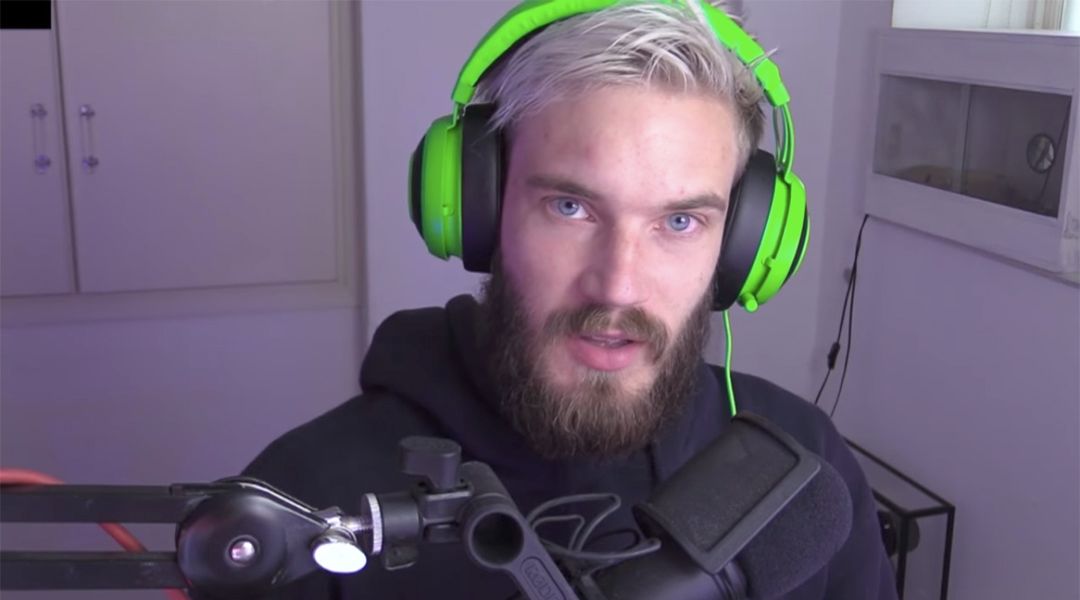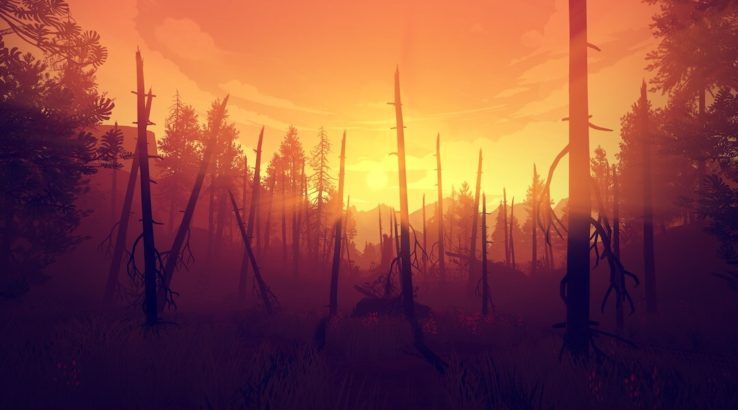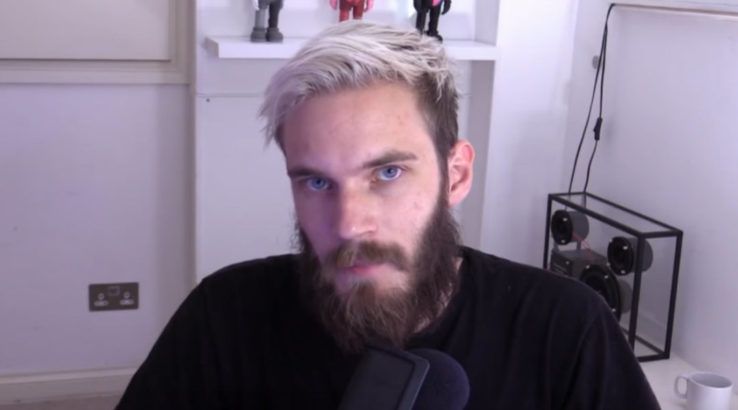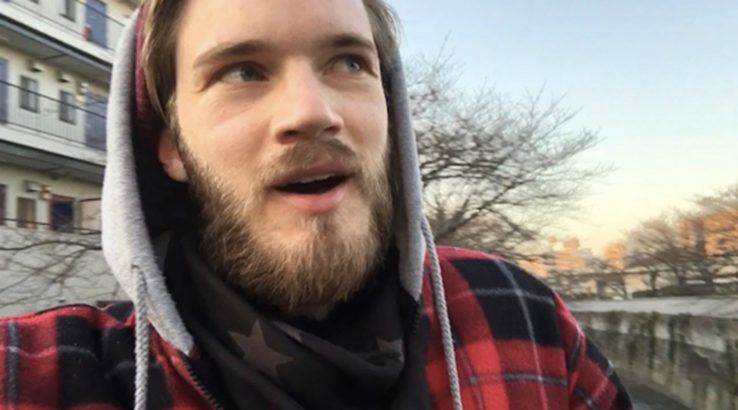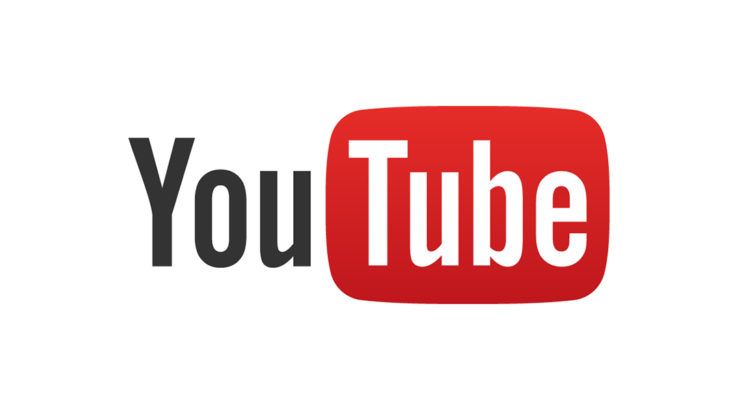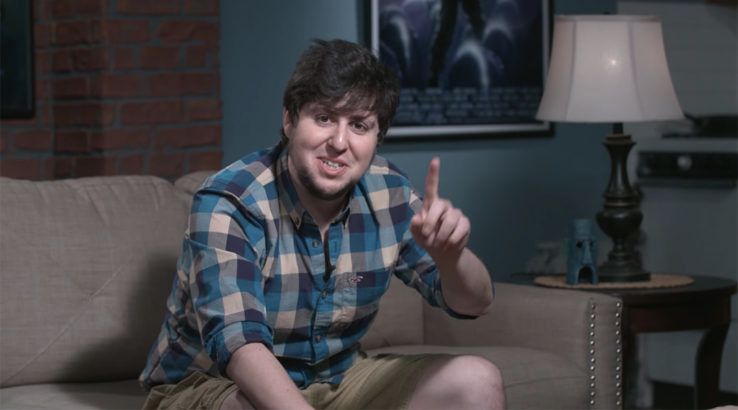After Felix 'PewDiePie' Kjellberg used a racial slur in a stream of PlayerUnknown's Battlegrounds, the gaming community and YouTube creators became immediately embroiled in debates over the matter. Although many discussions have been held over racism within gaming, in particular the use of racist language in the online multiplayer setting, there were also concerns among other creators over exactly what the ramifications would be.
Soon after the stream itself, Firewatch studio Campo Santo Games made it clear that it would lodging a copyright strike against the YouTuber, with developer Sean Vanaman stating that a similar fate would reach any further videos from PewDiePie on Campo Santo projects. What's more, Vanaman also suggested that other game creators who did not want their content to be associated with someone who used racial slurs should follow his lead.
Now, it's become apparent that this DMCA takedown request has been submitted, and that the PewDiePie copyright takedown has been approved. The YouTuber discussed the matter on his channel, disappointed that Campo Santo had pursued the action taken.
However, what's not quite clear at the moment is exactly what will happen next for PewDiePie. The fact that he has a DCMA copyright strike next to his name is certainly a concerning one, however, as falling afoul of YouTube's copyright conditions is something no creator wants to do. If PewDiePie receives three strikes, then there is the distinct (but unlikely) possibility that his channel could be shut down, taking with it his billions of views.
Should other studios decide to follow Campo Santo's lead, and try to stop PewDiePie from playing their games on his channel, then that certainly could be a possibility, and it's one that the YouTube star would no doubt want to avoid at all costs. Whether any other developers will follow suit, however, is another matter entirely, although PewDiePie nearly using racist language once more just days after the original incident could make others more likely to distance themselves from the YouTuber.
Of course, PewDiePie does have some options at his disposal right now, as Google does offer several routes that can be taken after receiving a copyright strike. If PewDiePie does want to challenge this takedown, he could either contact Campo Santo directly and request that the strike is retracted, or make a counter-claim stating that his video falls under the grounds of fair use. Given that Campo Santo followed through on its copyright action in spite of PewDiePie's attempt to avoid it by changing the video to private, it seems likely that he would have to submit his counter-notification if he wishes to take any action whatsoever.
This is a route that a number of YouTube creators have had to take over the years. Recently, critic Jim Sterling became entangled in a vicious battle with developer Digital Homicide, after the studio made spurious copyright claims against videos that criticized its game and the manner in which they were released on the Steam digital distribution platform.
In Sterling's case, the fiasco culminated in a multi million dollar lawsuit, which was eventually thrown out due to its frivolous nature. When it comes to any potential ongoing dispute between Campo Santo and PewDiePie, fellow YouTube creators may feel a little more concerned, as the central issue of the copyright claim could end up revolving around the status of the Let's Play genre of video.
In general, Let's Play videos are seen by their creators as covered under the practice of fair use, due to their critical nature. However, the boundaries of what is and isn't acceptable under fair use with regards to Let's Plays have never truly been tested. Campo Santo could claim that it wishes to revoke its agreement for PewDiePie to create Let's Play videos of its property Firewatch, citing that PewDiePie's video would lead them to be associated with a brand that does not align with their own.
Understandably, other YouTubers could be concerned about how this could play out. Should the conflict between Campo Santo and PewDiePie set a legal precedent, then it could have major ramifications for other creators, either in terms of solidifying their right to create and make money off their content or allowing greater control and influence from game creators and publishers.
After all, although streaming and online video content creation are hardly new, it's still the Wild West in terms of regulation. It's part of the reason why issues such as the Warner Bros. paid promotion case came to a head, and why Nintendo's relationship with Let's Players has been criticized.
However, the potential fallout of PewDiePie's use of racist language could eventually spread further than the case in hand in other ways. At the beginning of this year, YouTube creators started feeling the pinch from a behind-the-scenes change that many referred to as the 'Adpocalypse'. A number of major advertisers on the platform threatened to curb their spending unless YouTube took action to stop advertisements from being shown on videos showing controversial content.
YouTube's automated systems then kicked in, which caused a headache for a number of creators. Caught up in the changes were a number of Call of Duty YouTubers who saw their ad revenue plummet. As the videos showcased wars and political conflicts, some were being included in with the nastier side of YouTube content, seeing their videos demonetized for including depictions of war.
Although some creators eventually saw monetization even out as YouTube tweaked its AI, there are still issues with some videos that are entirely unrelated to any controversial content. On top of this, some feel as though this move was just the first step towards greater control over YouTube content when it comes to advertisements. As it stands, there is already pressure for YouTube to do more when it comes to content that advertisers are uncomfortable being associated with, and - like it or loathe it - gaming content on YouTube has started to earn itself something of a reputation.
This is, of course, not the only time the PewDiePie has become tangled in an argument over racism, with the use of anti-Semitic content in a previous video the reason why he was dropped by Disney's Maker Studio. Other prominent YouTube gamers have also made waves for the wrong reasons, such as the JonTron racism controversy of earlier this year. These incidents have been regular enough to get other creators nervous, particularly when it relates to such high profile, influential members of their community.
Other YouTubers have already voiced their concerns over what happens next, particularly given that advertisers are still twitchy over associating themselves with creators that deal in unacceptable content. As such, some have already expressed their worry that a further tightening of the advertisement model could take place, with YouTube taking a closer eye at the extremely popular gaming content on the platform.
All in all, YouTube is a very fragile ecosystem, made up of a number of unwritten rules that aim to benefit those involved. Whether it comes through a test of the copyright strike model or an increase in the scrutiny of videos looking for ad revenue, there's certainly a sense that PewDiePie's comments could lead to change. Time will tell whether there is any fallout, and if it is severe, but the YouTube community is keeping a very close eye on the matter.

